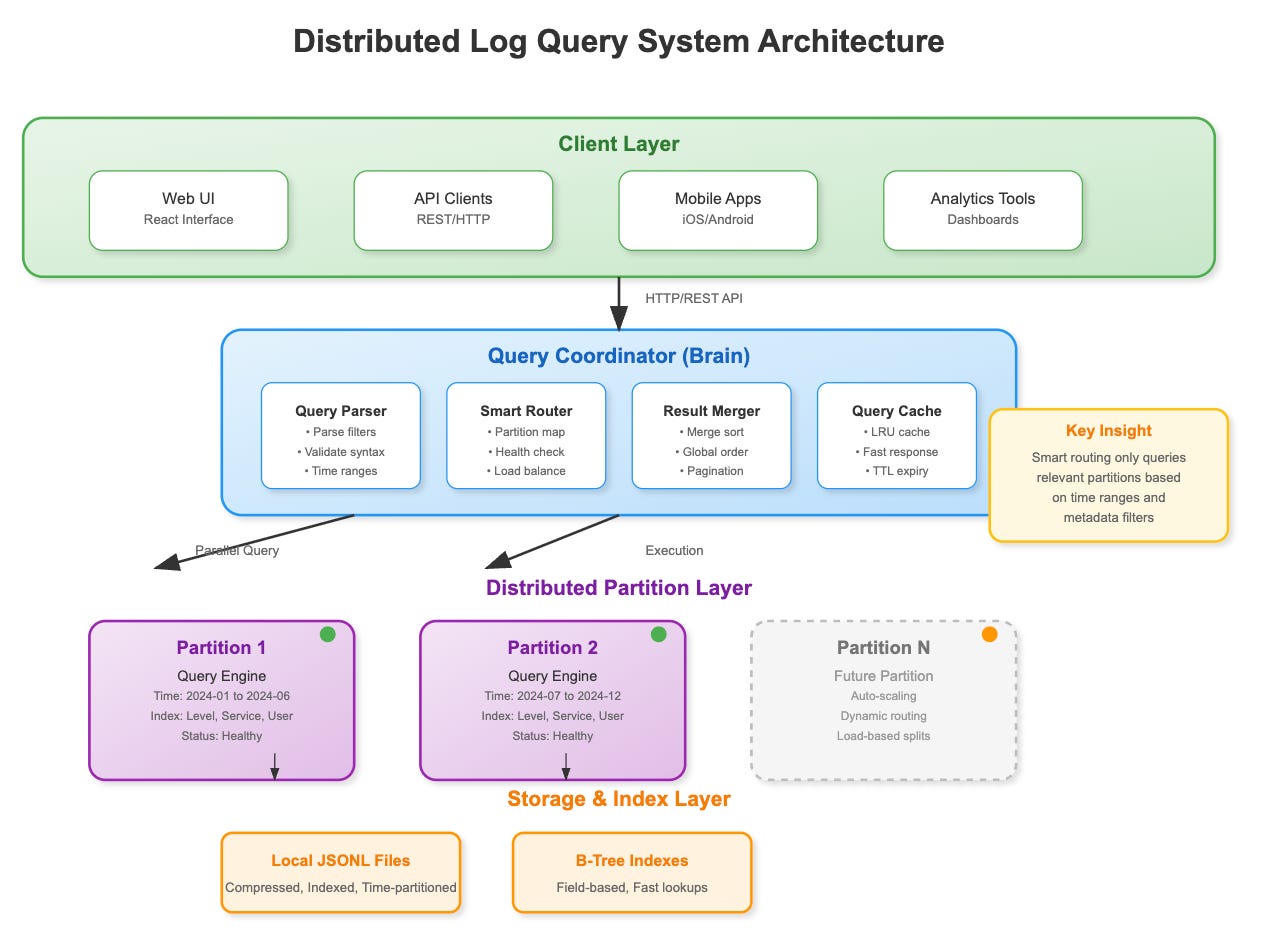🔍 Day 27: Building a Distributed Log Query System Across Partitions
Week 4: Distributed Log Storage | 254-Day Hands-On System Design Series
📋 Table of Contents
The Detective's Challenge
Core Architecture & Concepts
Implementation Deep Dive
Hands-On Project Implementation
Build, Test & Verification Guide
Performance Optimization
Real-World Applications
Assignment & Next Steps
🕵️ The Detective's Challenge
Imagine you're a detective trying to solve a case, but the evidence is scattered across 50 different filing cabinets in different buildings. You need to search all of them efficiently and piece together the results. That's exactly what we're building today - a system that can query logs distributed across multiple partitions and return coherent, ordered results.
Yesterday, we built a cluster membership system that knows which nodes are alive and healthy. Today, we're leveraging that foundation to build something even more powerful: a query system that can intelligently search across your entire distributed log cluster.
Why This Matters in Production Systems
When Netflix processes billions of log events per day across thousands of services, they can't afford to have engineers manually checking each partition when debugging an issue. Their query system needs to:
✅ Search across hundreds of partitions simultaneously
✅ Return results in seconds, not minutes
✅ Handle partial failures gracefully
✅ Maintain consistent ordering across time zones
The key insight that separates production systems from toy implementations is query planning. Just like a database query planner, our system needs to be smart about which partitions to query, how to parallelize the work, and how to merge results efficiently.
🏗️ Core Architecture & Concepts
The Scatter-Gather Pattern with Intelligence
Our distributed query system implements the scatter-gather pattern but with a critical enhancement: smart routing. Instead of blindly querying every partition, we use metadata to route queries only to relevant partitions.
Client Query → Query Coordinator → Smart Router → Relevant Partitions
↓
Result Merger ← Parallel Results ← Query Executors
↓
Final Response



